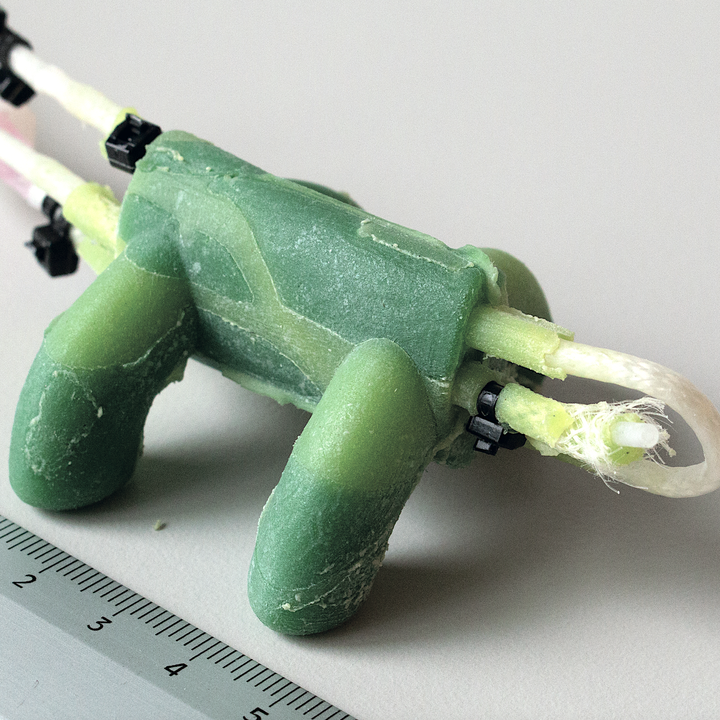
Abstract
This paper introduces a computational approach for routing thin artificial muscle actuators through hyperelastic soft robots, in order to achieve a desired deformation behavior. Provided with a robot design, and a set of example deformations, we continuously co-optimize the routing of actuators, and their actuation, to approximate example deformations as closely as possible. We introduce a data-driven model for McKibben muscles, modeling their contraction behavior when embedded in a silicone elastomer matrix. To enable the automated routing, a differentiable hyperelastic material simulation is presented. Because standard finite elements are not differentiable at element boundaries, we implement a Moving Least Squares formulation, making the deformation gradient twice-differentiable. Our robots are fabricated in a two-step molding process, with the complex mold design steps automated. While most soft robotic designs utilize bending, we study the use of our technique in approximating twisting deformations on a bar example. To demonstrate the efficacy of our technique in soft robotic design, we show a continuum robot, a tentacle, and a 4-legged walking robot.